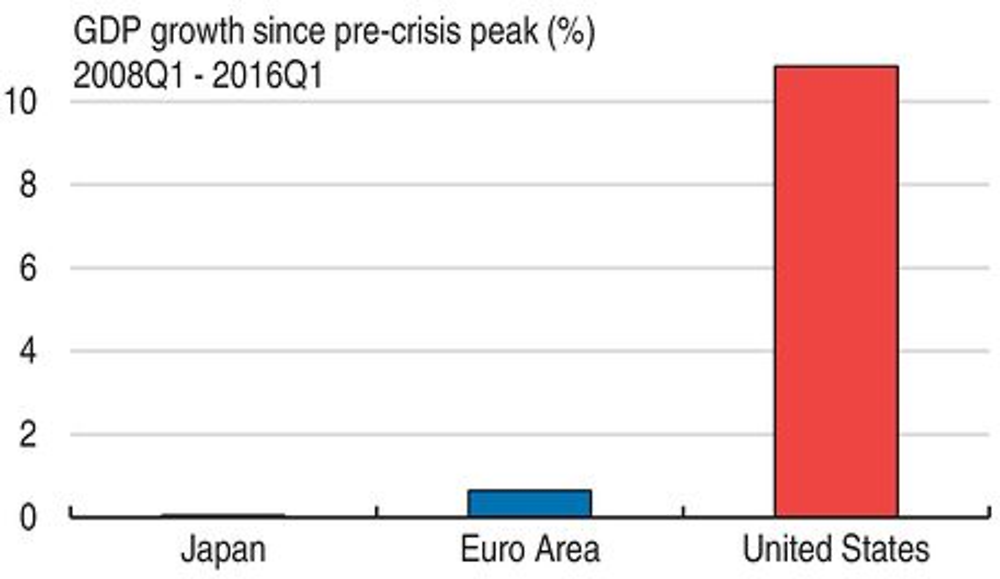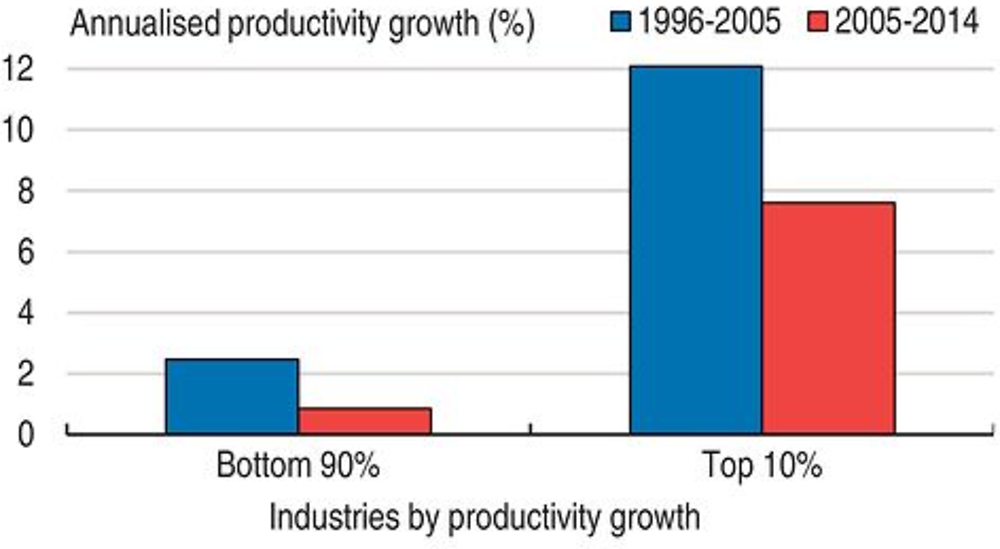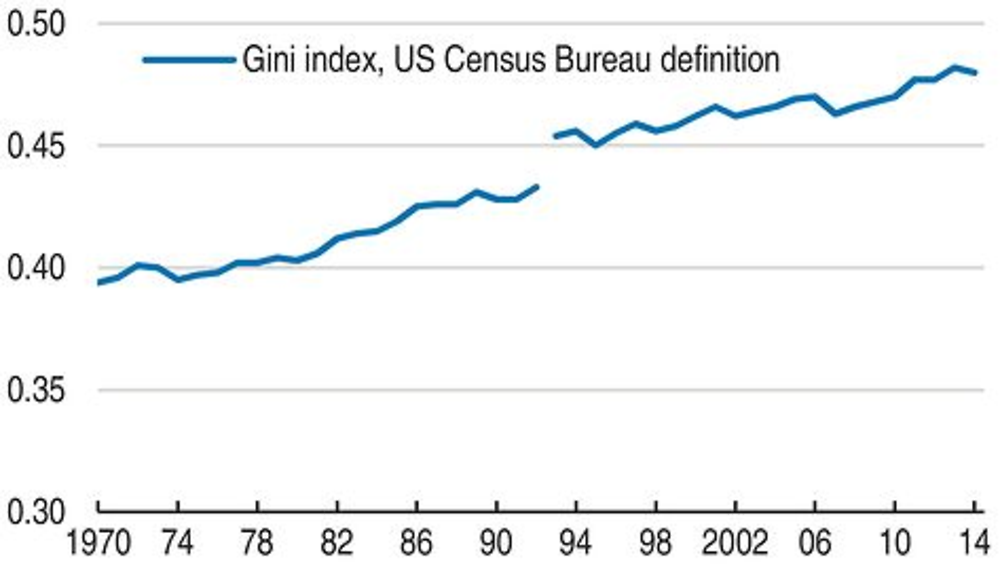Executive summary
The US economy has rebounded from the crisis

Seven years after the financial crisis, the US economy has rebounded : output has surpassed its pre-crisis peak by 10%, robust private-sector employment gains have sharply reduced unemployment, fiscal sustainability has been largely restored and corporate profits are high. The short-term outlook is for further growth near potential (albeit crisis-reduced at about 2%), where well-designed investments in infrastructure, skills and green growth would contribute to a more robust and sustainable expansion.
Productivity has slowed in most industries

Productivity growth has been sluggish recently in most sectors of activity, even in “frontier firms” of industries such as ICT and pharmaceuticals. Should it persist, slow productivity growth will create challenges, notably for addressing income inequality, welfare promises, raising standards of living and investment incentives. Restoring the traditional dynamism of the American business sector may be one way to boost productivity growth. This requires competitive market forces, skilled and mobile workers and policies to promote innovation.
Income inequality continues to increase

While growth has rebounded, it remains unequally distributed across socioeconomic groups. Income inequality continues to increase, women typically receive lower salaries than men, and some groups are disadvantaged in the labour market with little prospect to return to work, notably those with criminal records. Children of poor families often lack the opportunity to do better than their parents because they do not have access to high-quality schools and tend to drop out of college. For those lacking skills demanded by employers, vocational training and continuing education have had mixed results.
